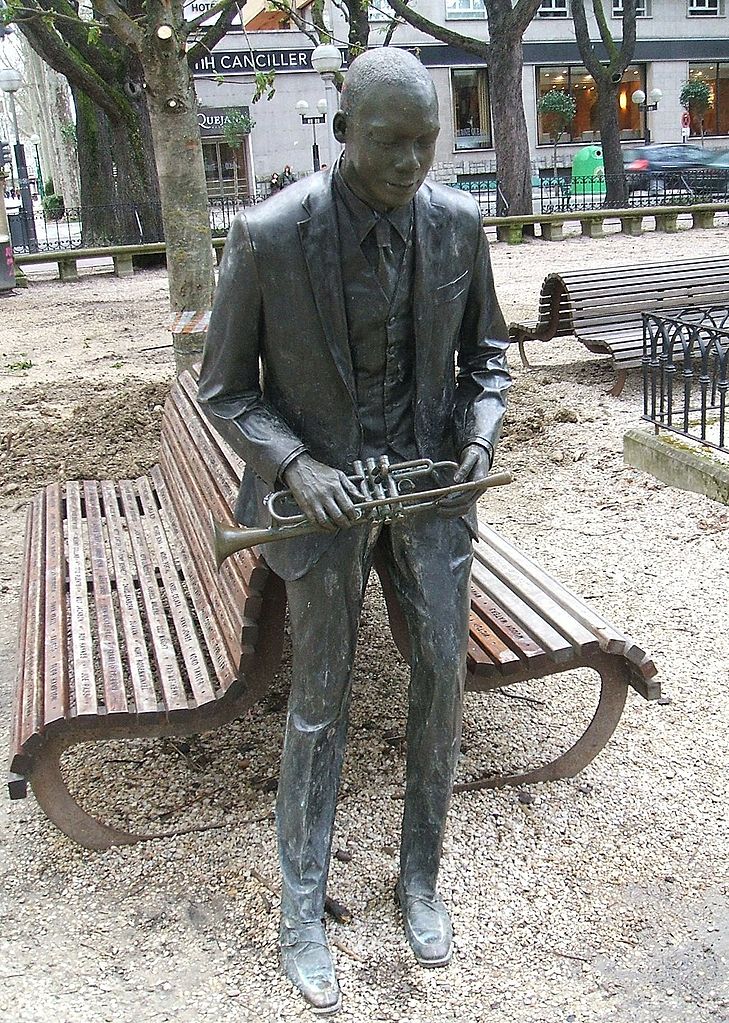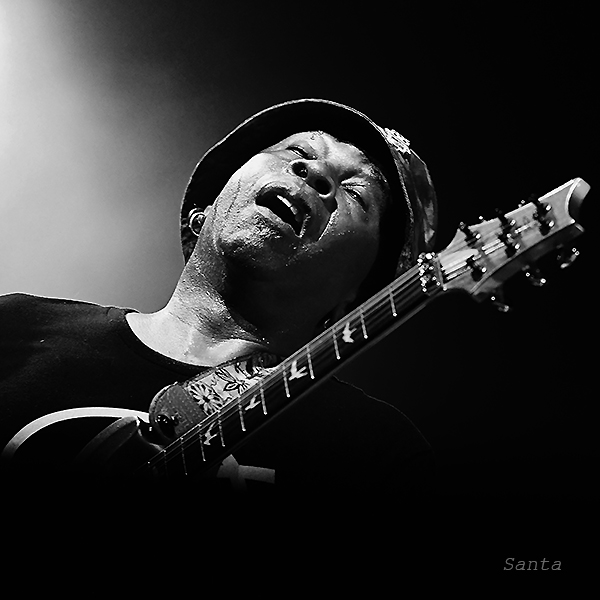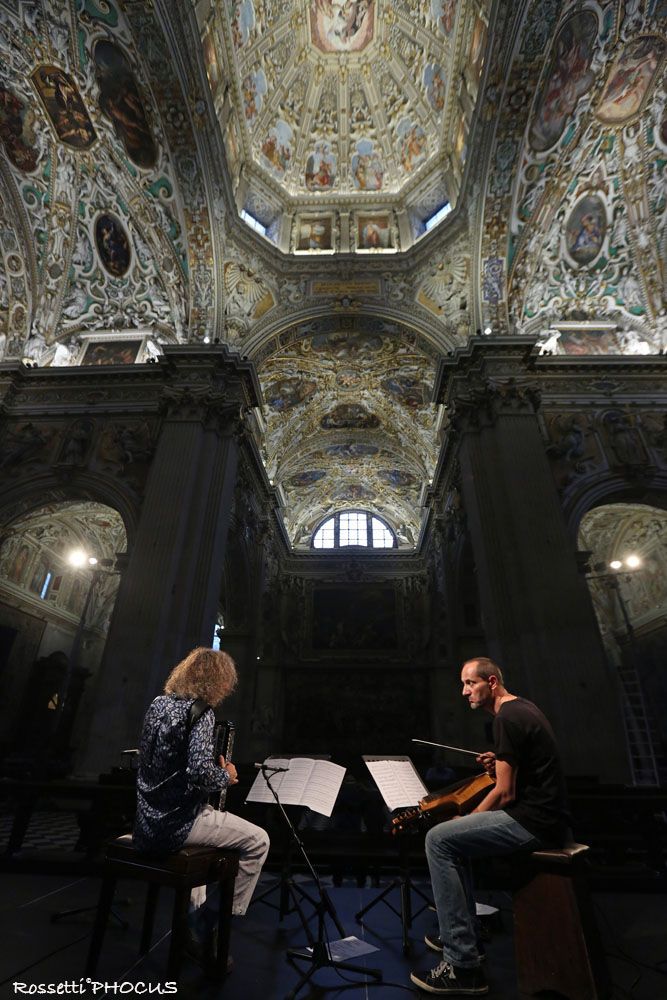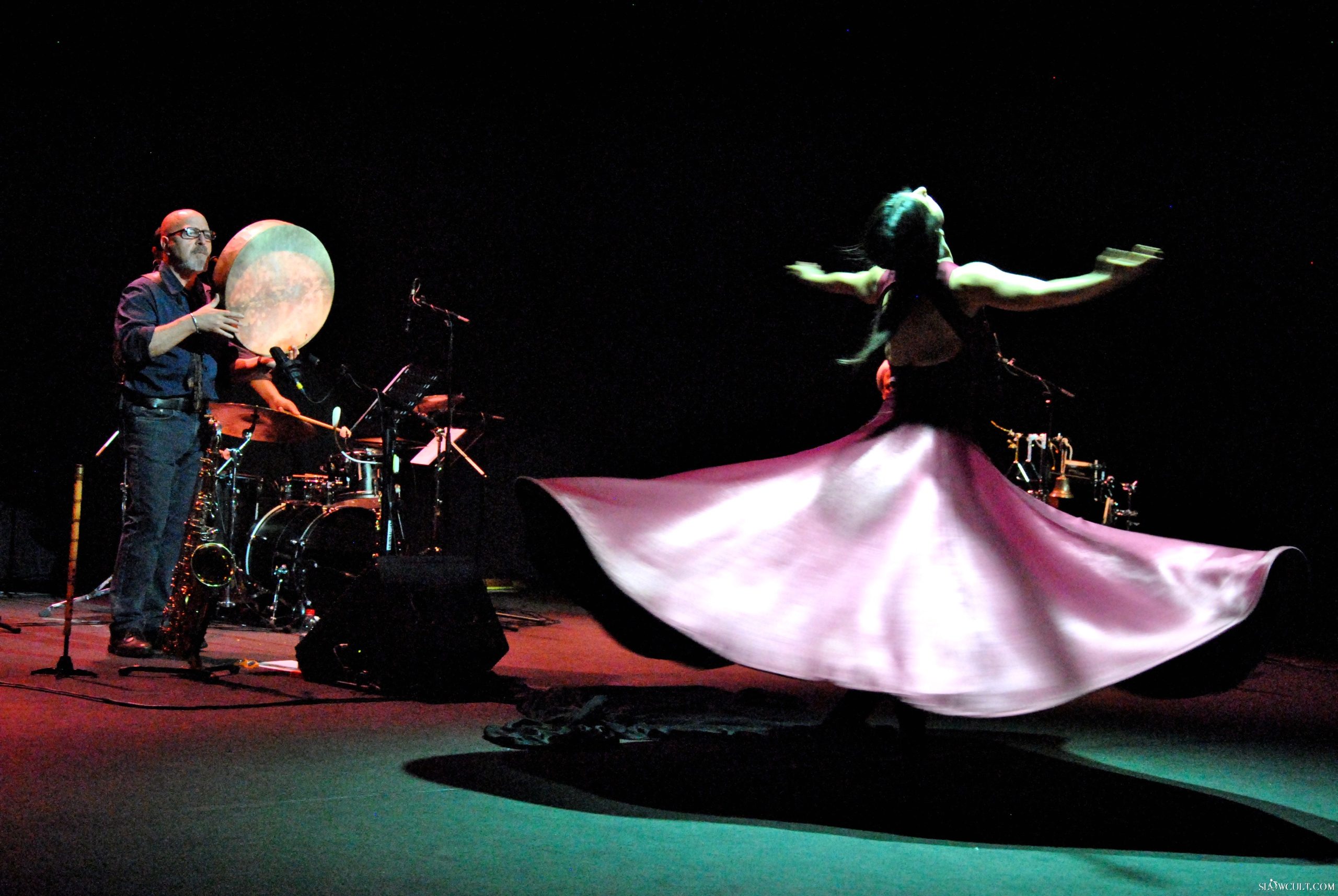The spirit of jazz survives in the UK thanks to the resilience, passion and
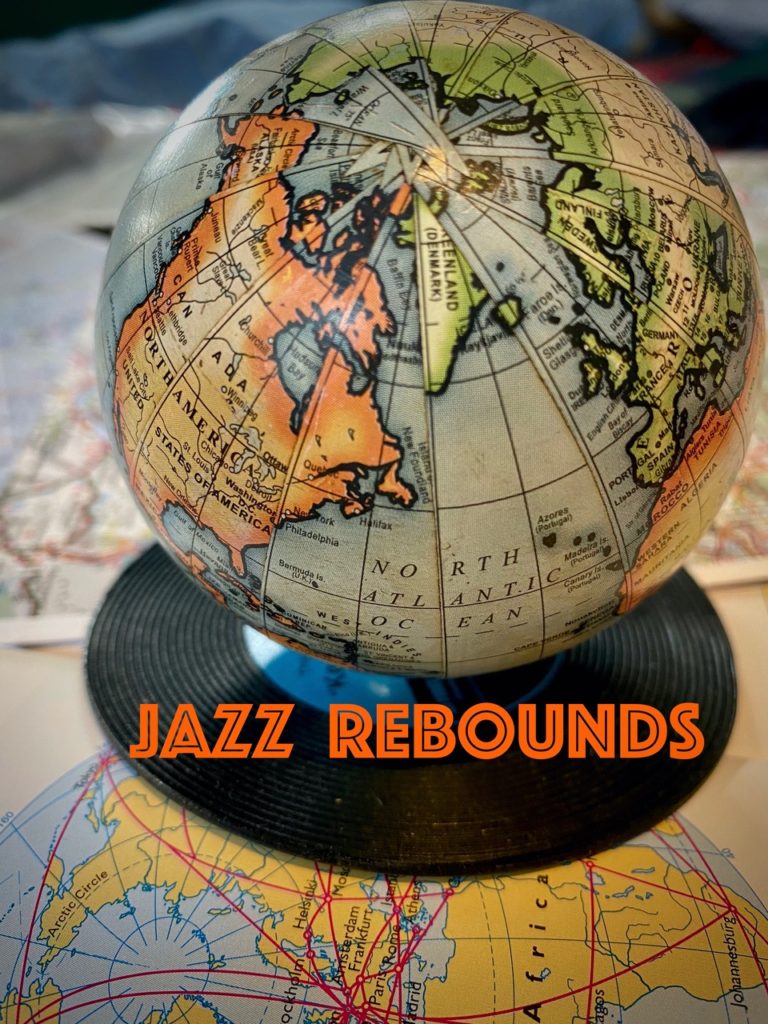
determination of some key members of our nation’s scene.
When coronavirus hit Great Britain last year, we were plunged into lockdown. Almost a year on, the UK is now at the height of the pandemic, with prospects for the future uncertain.
New variants of the virus competing with a fast-rolling vaccine programme, and news of Glastonbury Festival 2021 cancelling add to a less than positive outlook for the months to come.
As a full-time musician (saxophonist, vocalist and composer) married to a professional drummer, I’m hit hard and all too aware of the struggle to survive and keep music playing. It would be understandable for musicians and venues, having dealt with continued knock-backs, to pack up their instruments, close their doors and write off 2021. But that’s not what we’ve done.
Even before the pandemic, world-renowned London mainstay venue Ronnie Scott’s Jazz Club streamed a couple of shows per month. When the first lockdown occurred, the club’s management team thought it logical to continue them on a regular basis, as a means of keeping contact with their audience and maintaining the unique live music experience, albeit through digital means. The venue’s twice weekly live-streamed events have been well received worldwide, with hundreds of people tuning in, adding to the live discussion on social media and thousands viewing the recordings after the event.

Music Booking coordinator of the club Paul Pace comments, “Ronnie’s reputation as a cornerstone of the UK jazz scene and a significant global venue has always put a certain impetus on the club to keep the spirit of jazz alive. We are aware that because of the strong legacy engendered by 60 years of existence at a world-class level, performers, audience and music supporters alike expect Ronnie’s to present, even in the current trying circumstances, the quality and diversity of the scene.”
There are many smaller clubs at the heart of that scene. Starting in 2015 bassist/booker Paul Jefferies and his wife Jayne set up The Little Live Music Company hosting top-class jazz in each of seven venues: Witney Jazz, Burford Jazz, Moreton Jazz, Cropredy Jazz, The Jazz Cave Cirencester, Woodstock Jazz and Bledlow Jazz.
That all stopped instantly when the pandemic hit. The Jefferies rescheduled performances for later in 2020, but even when some segments of society began to re-open, live music did not. They rescheduled their concerts again, with an emphasis on outdoor performances.
The couple explained, “During the first lockdown, we discussed how we could keep engaged with our audiences. We felt this was critical to ensure that audience members didn’t ‘forget’ about live music for the future. We hit upon the idea of creating playlists of music in Spotify to reflect the music of musicians and acts that would have performed in March to July, and this playlist was distributed to our audiences via group emails – one for each of the clubs we ran.
“Judging by the messages we received after the first mail-out, this was welcome and appreciated. It ensured that when we returned, customers would be keen to come to concerts and, thankfully, in August, September and October, when restrictions eased for a time, every concert sold out. We also kept engaged with musicians through social media, telephone conversations and email. We kept musicians abreast of our situation and rescheduled their performances as soon as we were able to.”
Their first concert back after lockdown was very much a celebration. I can vouch for the success, as our band was the act booked for the Burford event, wherein the music prevailed despite a short rain shower. To go forward, the Jefferies studied the extensive government guidelines to ensure all their venues were covid-secure, but they knew it would not be easy going for those relying on ticket sales.
“One of the most restricting issues was limited audience numbers. This meant that most of our concerts only just covered their costs or occasionally made a loss,” the couple has said, “but we were determined to keep audiences engaged with live music and to provide some small income for musicians, many of whom had earned nothing for months by then.”
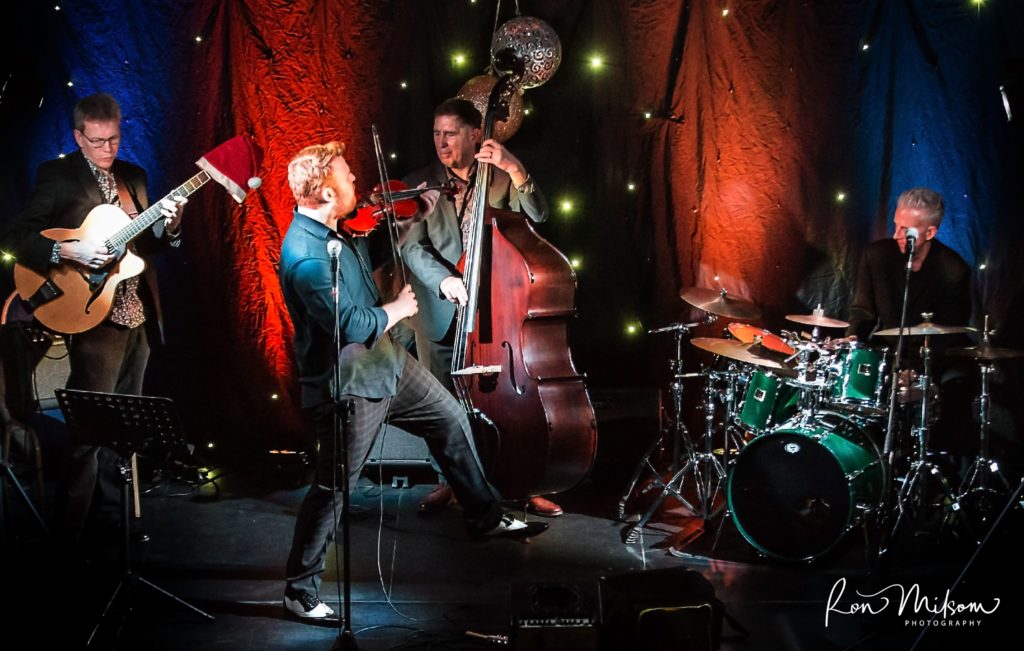
They knew this from personal experience; Jayne’s son Ben Holder, one of the finest jazz violinists in Europe, performed one of the final live performances at The Corn Exchange Witney on December 21, 2020.
Musicians themselves have taken to new online technology, streaming live performances across the airwaves during each lockdown, something myself and my husband have adapted to. There is an abundance of online music available featuring top UK jazz musicians, welcome performance providing much needed interaction.
For instance, piano/vocalist Liane Carroll has been performing ‘giglets’ together with bassist husband Roger Carey from their living room in their hometown, Hastings. Jazz giant Ray Gelato opened his home for “Coffee
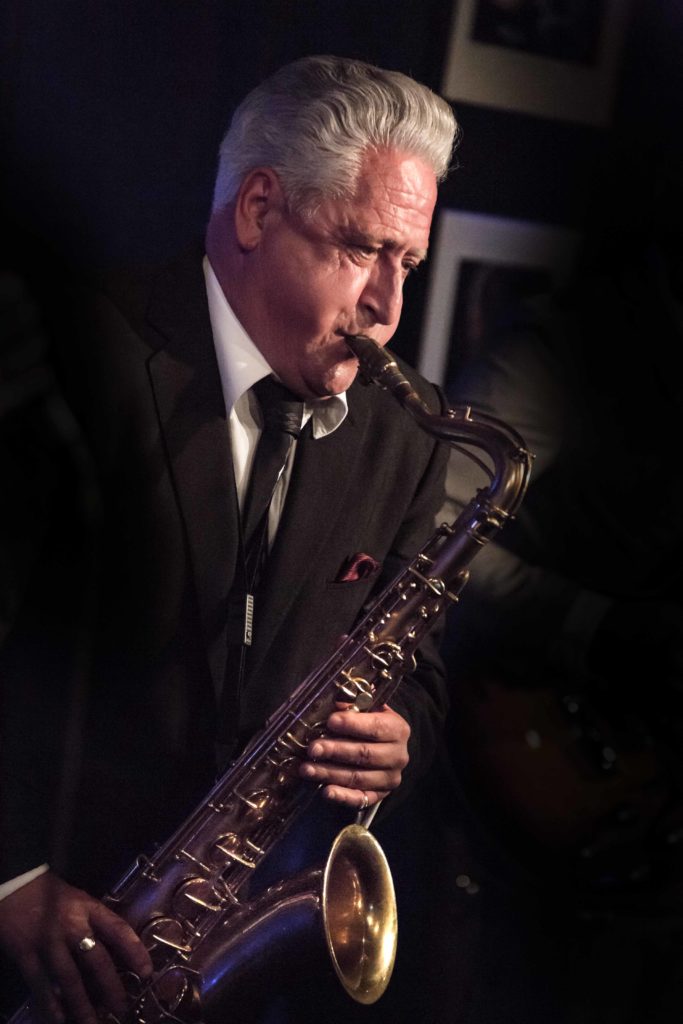
with Ray,” chatting, recalling stories, performing spontaneous tunes on saxophone and singing at the piano. Clarinetist Adrian Cox teamed up with London jazz venue Toulouse Lautrec to host a “Sunday Service” which has proved incredibly popular, thousands viewing as Adrian performs solo and sings music by such jazz icons as Jelly Roll Morton, Edmond Hall, Irving Fazola, Jimmy Noone and Johnny Dodds.
Trumpeter Enrico Tomasso set up his “Pop-up Louis” live-streamed performances from his home in London with an Armstrong theme.
He said, “It has been really important, not only for keeping the mind moving forward musically but physically. During those first lockdown days, I thought, ‘I either give up until it gets back to normal or find an interim way to keep playing.’
“I now realise if I had done the former, the way back to competent playing would have been an enormous effort as it’s a struggle at this level to maintain techniques and mindset.” Tomasso described “Pop-up Louis” as being all about “playing good tunes” with the inspiration of Armstrong being his biggest motivator.
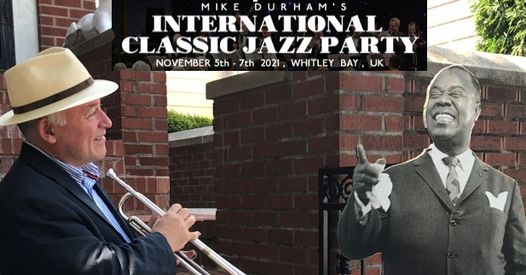
Tomasso learned about new technology and skills to deliver the programmes. It has allowed him more opportunity to let people hear his music, and the response has been heartening; his regular listeners have formed communities to chat with each other and enjoy the music together.
But he is aware of such performances’ limitations, such as not being in the same room as other musicians. He misses the spontaneity of players able to feed off of each other and a live audience — what he calls “the two-way traffic of emotions and spurring on.”
Saxophonist Simon Spillett has taken a different approach. Explaining how the pandemic left him feeling “marooned from performing” and raising the questions, “What am I, who am I?,” his passion for playing his instrument dampened, so he turned to writing as an output for his creativity. He’s used the time while the live music world sits out the pandemic to produce a daily blog highlighting his knowledge of British Jazz history.
“There’s nothing quite like the adrenalin rush of doing a gig, but sharing a good story is hugely creative,” Spillett maintains. “And I can’t say that I see much difference between my voice as a writer and that as a saxophonist. I’m drawing on the same inspirations for both, but they are expressed in different media.”

His daily narratives and sharing of rare photographs have proved entertaining and informative. Many of his posts focus on the English multi-instrumentalist Tubby Hayes (1935-1973), whose biography The Long Shadow of the Little Giant: The Life, Work and Legacy of Tubby Hayes (Equinox, 2015; second edition, 2017) Spillett wrote and published to acclaim.
I have enormous respect and empathy for musicians and venues who have demonstrated creativity, hard work, devotion to their ideals throughout the pandemic, raising morale and ensuring opportunities to perform and create. Praise as well to music photographers who have shown initiative to accommodate and document the new normal.
Paul Jefferies summed up what it means to perform a gig to a live audience: “In a word, everything.” Perhaps that dictum explains why people in the UK have bent over backwards to sustain jazz. Imagination and willingness to adapt have allowed us to be a significant part of this unique experience. There is a great sense of pride in the UK jazz scene right now, and to be part of such a community feels like an important and integral part of life, in itself something to celebrate in these crazy times.

